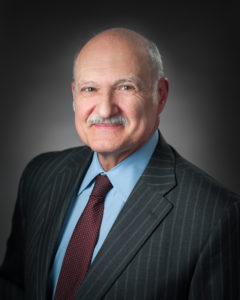Category: Firm Client Success Stories
Zawideh Successfully Defends Trustee Against Claims of Fraud

Twenty years ago, the Settlor, a widow, established a trust for the benefit of her daughter, “Jane Doe” (“Jane”), Jane’s two sons, and the Settlor’s son, ”John Doe” (“John”), and daughter-in-law, “Mary Roe” (“Mary”). The Trust nominated Jane as the successor trustee of the trust, except as to that portion of the Trust that was to benefit John and Mary; for John and Mary’s trust, the Settlor nominated her CPA as the successor trustee. Under their trust, on the Settlor’s death, John and Mary received two cars and the Settlor’s home, or the proceeds of that home to be used to purchase another home, plus their trust was to be funded with cash to be used for John and Mary’s benefit.
Settlor died eighteen years ago. Last summer, Mary brought an action against the CPA demanding an accounting of the trust and claiming that the CPA breached her fiduciary duties to Mary regarding payment of funds for Mary’s maintenance. Six months later, Mary amended her petition to add Jane, claiming that when the settlor died, Jane “fraudulently” underfunded John and Mary’s trust by over a quarter of a million dollars. Jane retained The Kemp Klein Law Firm, and attorney Robert Zawideh immediately noticed up Mary’s deposition. At her deposition, Mr. Zawideh got Mary to admit that Jane owed her no duties, and that she had no evidence to support her claims against Jane. Minutes after the end of that deposition, Mr. Zawideh explained to Mary’s attorney that if he did not immediately dismiss Jane from the case, that both he and his client would be subjected to a claim for sanctions. The following day, counsel wrote to Mr. Zawideh agreeing to have his client dismissed from the lawsuit.
Buttiglieri and Nahhat Win Jury Verdict in Trust Contest


Kemp Klein attorneys Joseph P. Buttiglieri and Edward Nahhat recently won a jury’s verdict affirming a contested Trust Amendment. Shortly before his death, the Decedent amended his Trust – substantially reducing the share of one of his children, who previously was to receive one-third of the Trust assets. The decedent had a difficult relationship with his son, so he decided to favor his two daughters in the amendment, and allocate to them the great bulk of his estate. While he was a seriously ill widower, there was no allegation that the Decedent was mentally incapacitated, only that he had been allegedly “unduly influenced” by the two daughters to change his Trust near the end of his life.
Testimony from various witnesses and documents were presented over a three-day jury trial before seven jurors. After the close of the case and final arguments, the jury determined that the Decedent’s Trust was valid, declining to find undue influence, and sustaining the surviving daughters’ unequal benefit.
The Trust and the amendments were not drafted by Kemp Klein. Unfortunately, when the last Amendment was signed, the scrivener attorney did not ask one of the daughters (who was named as Trustee and beneficiary) to leave the room while the document was reviewed and the Decedent signed it. Also, the lawyer apparently was unable to bring a second witness to the signing appointment in the decedent’s home, so the attorney was the only disinterested live witness to the execution. These signing anomalies were factors in sending the case to jury. One key fact elicited at trial appears to have been the decedent’s decision to visit with a priest the day before he amended his trust for the last time.
Kemp Klein attorneys are always very careful in planning the execution of instruments in such a way to reduce potential challenges to those documents. This not only includes making sure that beneficiaries of the Trust and/or Will are not present at the execution – but that appropriate witnesses are available and, if necessary, that a medical examination of the client is conducted to assure not only their competence, but that the testator is not being unduly influence by anyone. While we try to make sure that our clients do not face litigation, it sometimes happens. Kemp Klein stands ready with an experienced litigation team to successfully represent clients in Trust, Will and all other contested Probate litigation.
Zawideh Defends Widow’s Inheritance

The decedent was a widower with no children of his own. From 2007 – 2011, using his own attorney, decedent created his estate plan and amended it several times. Initially, following the death of decedent and his wife, decedent left 50% of decedent’s assets to Plaintiff, with the other 50% to Defendant and his father. Two years later, decedent reduced Plaintiff’s share to 1/3, with Defendant and his father each receiving 1/3 of the trust. After moving into a nursing home, Plaintiff visited decedent less even though his business was across the street. Defendant and his family continued to regularly visit with the decedent at least twice a week. Thereafter, decedent removed Plaintiff completely from his estate plan. This occurred on 3 different days, in 6 different documents over a 20-month period.
Plaintiff accused Defendant of working with decedent’s attorney to remove Plaintiff from the estate plan. Plaintiff’s evidence of this was the fact that decedent’s attorney rented space from Defendant and his father one day a week and periodically shared a receptionist/legal assistant. Plaintiff also established a presumption of undue influence at trial, i.e., that Defendant had a confidential or fiduciary relationship with decedent, that he had an opportunity to influence the decedent, and that he benefited from the changes to the estate plan.
The Court, however, found that Defendant rebutted the presumption. Every witness testified decedent was strong-willed, even feisty, and made his own decisions. This was borne out in an audio recording where decedent clearly stated he took good care of Plaintiff and his family and that Defendant and his family had done far more for the decedent. The Court further found no evidence that Defendant was “guiding” decedent’s attorney “behind the scenes”. That lack of evidence regarding the connection between decedent’s attorney and Defendant was significant in light of all the other testimony presented.
The Court also noted that an important indicator of undue influence is whether the testator or grantor had been isolated from family and friends since isolation from other formerly trusted people could indicate an attempt to assert control over the victim. In this case, multiple witnesses testified that Defendant never discouraged or prevented decedent from contacting anyone, even Plaintiff or his family. Defendant took decedent to the Plaintiff’s restaurant and did not restrict or attempt to restrict visits by anyone to decedent when he lived in the nursing home. Nor was there any testimony that Defendant disparaged Plaintiff to the decedent.
According to the Court, there was no evidence that Defendant even attempted to isolate or control his relationship with the decedent. Further, Plaintiff never contradicted the evidence that decedent and Defendant were close. In fact, there was ample uncontradicted testimony that decedent thought of Defendant as a son.
For all these reasons, the Court found that Petitioner failed to carry the burden of demonstrating undue influence on the decedent by Respondent and therefore dismissed his claim.
Zawideh Defends Widow’s Inheritance

Petitioner, Mr. Zawideh’s client, married her late husband (“the decedent”) in November 2002, after a two-year engagement during which they lived in different states. Two days before their wedding in Michigan, her then fiancé picked up the Petitioner from the airport and told her for the first time that his aunt, the matriarch of his family, who employed decedent and controlled his finances, wanted decedent and petitioner to sign a prenuptial agreement that would leave Petitioner with nothing in the event of the decedent’s death. The alternative was that the aunt would not allow them to get married. This demand put Mr. Zawideh’s client under tremendous pressure to sign the agreement. To get Petitioner to sign the prenup, decedent assured her that it was merely a formality and that it was just something to please his aunt. Given the stress of the moment, Petitioner relied on decedent’s word and signed the prenup after meeting with decedent and an attorney who represented both the decedent and his aunt. To complicate matters, decedent and petitioner signed a postnuptial agreement one year later that also left Petitioner with nothing in the event of either divorce or decedent’s death.
The aunt passed away 12 years later, leaving everything to the decedent. After the aunt’s death, decedent and Petitioner agreed that neither the prenuptial nor the postnuptial agreements would be honored or enforced. But before they took action on that agreement, decedent’s health began to dramatically deteriorate. By December of 2016, decedent was diagnosed with kidney failure and was on dialysis three times per week. In August of 2017, decedent instructed his attorney that he “wanted to take care of” both petitioner and his nephew. Unfortunately, the attorney took no action on decedent’s instructions until December of 2017, after decedent was gravely ill and admitted to the hospital. The attorney then spoke to his law partner and advised him that decedent wanted to update his estate plan and advised him about the prenuptial agreement. The partner waited until decedent was well enough to have the discussion, which he did on December 28, 2017 in decedent’s hospital room. Unfortunately, the partner did not get into specifics because the Petitioner and the nephew were present. Although he did mail to decedent at his home an estate planning template for decedent to fill out, the decedent died within the week and never made it home.
Immediately after his death, several family members, many of whom had not spoken to or seen the decedent in years came forward to – as one of them testified – “enforce [decedent]’s wishes.” Robert Zawideh aggressively attacked the circumstances of the signing of the two agreements and sought to prove that, regardless of those circumstances, the decedent and the petitioner verbally agreed to dispense with them. Significantly, there existed an approximately 15 year old deposition transcript where decedent testified to ownership of a large asset not disclosed in the prenuptial agreement. After two years of litigation, 11 depositions, extensive discovery and multiple cross motions for summary disposition, the parties agreed that, instead of receiving nothing, Petitioner will receive approximately 1/3 of her late husband’s $3.1 million dollar estate.
Rolfe and Callahan Save Client Over $800,000
A new client recently came to Kemp Klein with the intention of updating their estate plan following the passing of a spouse. However, in the process of reviewing the client’s trust accounts, attorneys Brian Rolfe and Casey Callahan discovered a technical error in the retirement account beneficiary designations made by a previous financial advisor.
The error would have required the client to cash out retirement accounts 14 years earlier than planned, which would have cost $165,000 in otherwise avoidable taxes as well as three more years of tax-deferred growth. Through detailed research and effective negotiations, Rolfe and Callahan were able to reverse the previous advisor’s error and save the client over $800,000.


